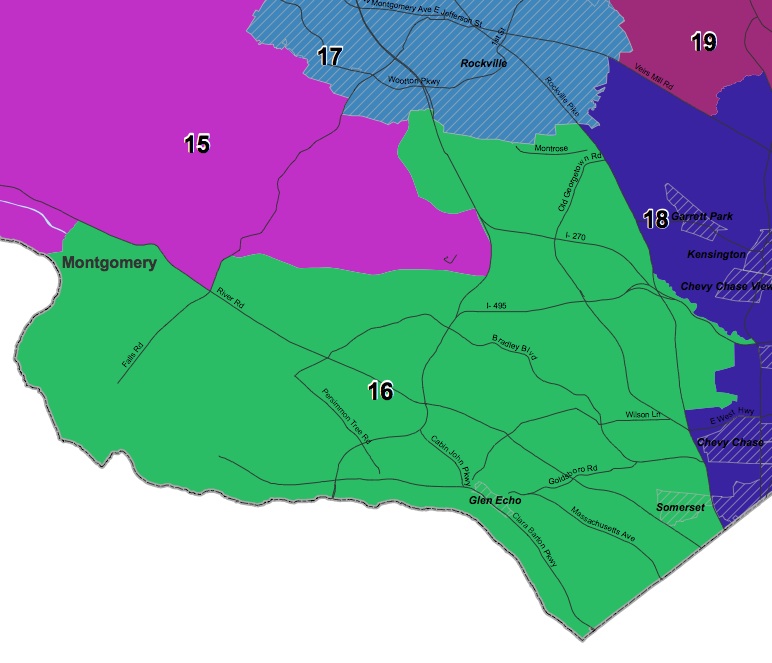Many people know that the Voting Rights Act can require the creation of majority-minority districts to protect minority representation. But the actual demands of the Act are often misunderstood.
The Supreme Court outlined the basics of when states must create districts designed to advance minority opportunity in a 1986 case called Thornburg v. Gingles. The case outlined a three-prong test that plaintiffs must meet in order to win a case arguing for the creation of a new majority-minority district.
Specifically, the minority group must prove that (1) it is sufficiently large and geographically compact to constitute a majority in a single-member district; (2) it is politically cohesive; and (3) racial-bloc voting usually defeats the minority’s preferred candidate.
I think of the first prong as the “is there a solution?” prong. Courts generally are not in the business of taking cases where they cannot offer relief. So if it is not possible to create a geographically compact single-member district with a group majority, don’t bother.
Of course, this still leaves room open for interpretation. For example, how compact must a district be to be deemed “geographically compact?” In more recent cases, courts have inveighed against minority districts with bizarre boundaries drawn for racial reasons–even as the Court has deemed it acceptable to gerrymander for partisan reasons.
This prong is one reason why there has been little litigation to create Asian-American majority districts. It’s just not possible to draw these districts in most areas of the country just as it would likely be very difficult at best to create one anywhere in Maryland.
The second prong requires that the minority group tends to vote together. Obviously, 100% cohesion never actually occurs and is not needed to meet this requirement. Moreover, the level of cohesion can still vary across races.
But the basic idea is that you cannot draw a district designed to protect the interests of minority if the minority is not cohesive. For example, how would one advantage the interests of a group that splits its votes evenly between Democrats and Republicans?
The third prong is often the most critical. If the first prong focuses on the potential for a solution, this prong assesses whether there is a problem. Voting must be racially polarized–that is, the minority and majority groups must regularly, though not always, support different candidates.
Moreover, racial-bloc voting must be sufficiently great to defeat the minority’s preferred candidate. After all, if a black candidate in a 40% black district receives 85% of the black vote and 35% of the white vote, the black candidate will still win with 55%.
If the minority candidate can win without drawing a district with a majority of group members, the Court did not really see a problem. Why should courts intervene to aid minority candidates if they have a good shot even without their help?
So the racial-bloc voting has to be sufficient to defeat the minority’s preferred candidate. For example, in the same district, if the black candidates rarely received more than 10% of the white vote, they would usually lose and meet the requirement.
In cases in which minorities can win with reasonable frequency even if they do not constitute a majority, courts are more reluctant to create districts. Del. Ana Sol Gutiérrez has argued for creating a subdistrict in District 18 to elect a Latino candidate. But her repeated election from a district without a Latino majority would provide evidence for the other side in a court case.
Note that I refer to the minority’s preferred candidate. The point is the candidate preferred by the minority group regardless of the race of the candidate. So white candidates who receive a majority of the black vote running against a black candidate are still minority-preferred candidates–or candidates of choice in the argot. Still, results from elections with candidates of the same race as the group at issue are considered especially valuable in assessing racial polarization in voting rights cases.
One also has to be careful not to lump minority groups together willy-nilly. Courts do not just combine African Americans, Latinos, and Asian Americans into a single category. On the contrary, one would need to prove that such groups consistently vote together to begin to make such a case. And they often don’t.
If you’d like to know more, you can buy a copy of my book, The Paradox of Representation: Racial Gerrymandering and Minority Interests in Congress, (the perfect Easter or Passover gift) or look online at Google Scholar or Research Gate for my articles in various political science and law journals.



